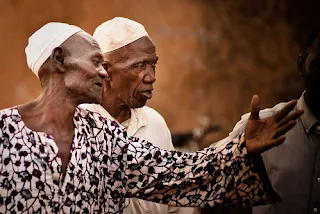Before You Buy Land in Africa: 8 Critical Pitfalls Every Diaspora Member Must Avoid
The Hidden Risks of Buying Land in Africa: A Diaspora Guide to Avoiding Costly Mistakes
For the African diaspora, buying land back home is more than an investment—it's a powerful connection to heritage, a dream of building a future on ancestral soil. However, this dream is often built on a complex reality where modern legal frameworks clash with centuries-old customary systems. Without the right knowledge, your investment can quickly turn into a protracted legal battle or a total financial loss. This guide cuts through the complexity to reveal the critical risks you face and the essential steps to protect your legacy.

Understanding Africa's diverse land tenure systems is the first step to making a secure investment
1. Customary vs. Formal Land Ownership: Navigating Two Systems
In many African countries, most land is controlled by families, clans, or chiefs through customary law. These systems may not require government titles or deeds. While deeply respected, customary ownership may not hold up in formal courts or banks. If you buy land without a registered title, your claim could be challenged later by anyone with a competing customary claim.

Customary land discussions often involve community elders and traditional leadership structures
2. Unclear or Multiple Claims to the Same Land
Because land registration systems can be incomplete or poorly maintained, a single plot may have overlapping claims: a family trust, a local chief's allocation, and an individual's title. Unsuspecting buyers have lost entire investments when courts ruled that the seller lacked the exclusive right to sell.
3. Inheritance and Family Disputes
Many families pass land down informally through generations. Children, siblings, or distant relatives can later contest sales — especially if they feel excluded from negotiations or believe the sale price was unfair. A plot that seems "for sale" may in fact be under collective family control requiring unanimous consent.

Family land disputes are common when inheritance documentation is unclear or informal
4. Fraudulent Sales and Fake Documents
Land fraud is a serious risk targeting diaspora buyers who may be unfamiliar with local documentation. Unscrupulous agents may forge deeds, invent titles, or sell land they do not own. Always verify any document with the official land registry (if one exists) and consult an independent local lawyer experienced in property law.
5. Land Use Restrictions and Zoning Laws
Some plots are designated for agriculture, conservation, or community use only. Others have hidden restrictions on foreign ownership or building specifications. Research local laws thoroughly to ensure your intended use — whether farming, building, or commercial development — is legally permitted.

Professional land surveys are essential for verifying exact boundaries and preventing future disputes
6. Costs Beyond the Purchase Price
Budget for significant additional expenses including surveys, legal verification, registration fees, stamp duties, and sometimes community or traditional leader approvals. In rural areas, you may also face informal costs for land clearing, access roads, or community development contributions.
7. Gender and Inheritance Barriers
Women — both local and diaspora — can face additional challenges if local customs do not fully recognize female ownership rights. If you're buying land as a woman, ensure your name will be on the legal title and that it's protected under statutory law, not just customary practice.

Women face unique challenges in land acquisition that require specialized legal support
8. Government Changes and Policy Shifts
Land laws in many African countries are evolving rapidly. Governments may introduce new registration requirements, reclaim unused land, or change foreign ownership rules. Always check the most current regulations and political climate before committing to a purchase.
Your Essential Due Diligence Checklist
- Hire a Local Lawyer Specializing in Land Law: This is non-negotiable. Do not rely on the seller's lawyer. Find your own reputable, local legal expert who understands diaspora purchases.
- Conduct a Title Search at the Official Land Registry: Verify the seller's name is on the title and that the land is free of liens, disputes, or government acquisition notices.
- Insist on a Professional Land Survey: Never skip this. A certified surveyor must physically mark the boundaries to prevent future conflicts with neighbors.
- Engage with the Community and Local Leaders: For land under customary tenure, your lawyer should facilitate meetings with the family head, chief, or community elders to secure their formal, documented consent.
- Confirm Zoning and Land Use Laws in Writing: Obtain official confirmation from the local planning authority that your intended use (residential, agricultural, commercial) is permitted.

With proper due diligence, diaspora land ownership can be a rewarding and secure investment
Related Articles
- Power, Class, and Land Ownership in Africa
- Black Homelands and Forced Land Removal
- Why Is Africa Rich but Starving?
The Bottom Line: Knowledge is Your Best Defense
Buying land in Africa can be one of the most rewarding decisions you make—but success depends on rigorous due diligence. The risks are real, but they are manageable. By partnering with trusted local experts, verifying every document, and respecting both formal and customary systems, you can transform the dream of owning a piece of home into a secure and lasting legacy.
Featured Articles from This Collection
How Many Countries Does Africa Have?
A look at Africa’s evolving political map — and how colonial borders continue to shape identity.






